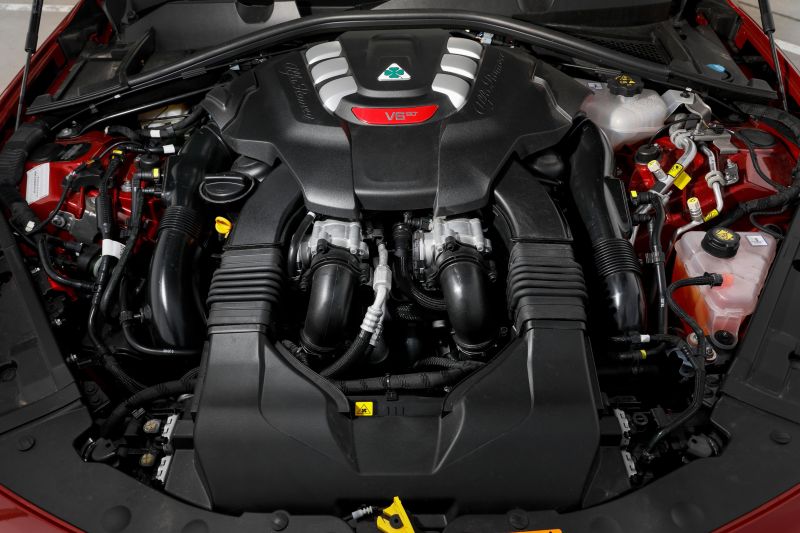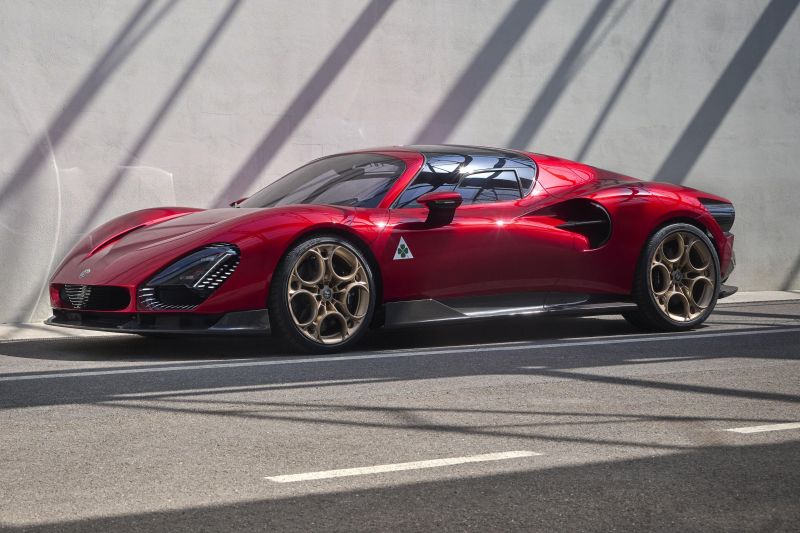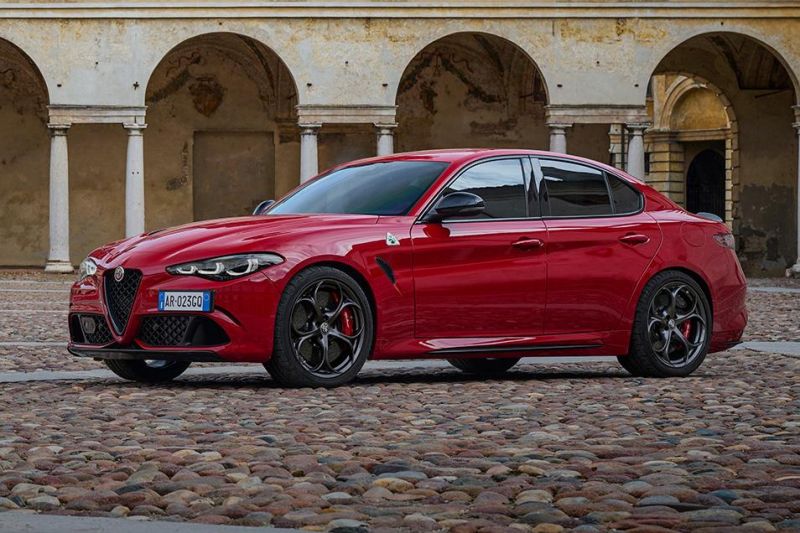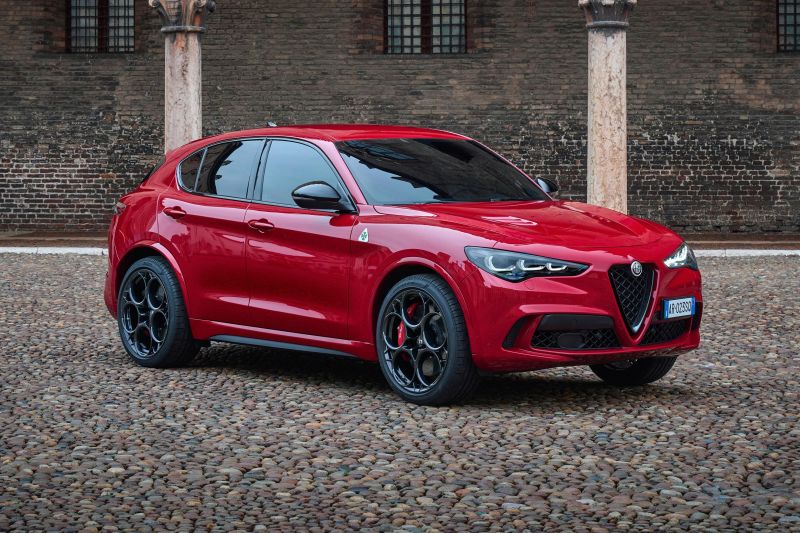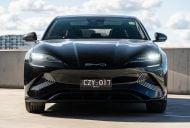Alfa Romeo is one of the European brands that will benefit from the European Council’s decision to abandon tougher Euro 7 regulations.
The Italian marque’s 2.9-litre twin-turbo V6 petrol engine will continue powering its performance vehicles past the originally anticipated 2025 deadline.
According to Autocar, when asked about the brand’s plans to use the renowned combustion engine in future models, CEO Jean-Philippe Imparato confirmed the powertrain will live on.
On the question of using the V6 engine in future unspecified models, Mr Imparato said, “The answer is yes because I’m expecting the result of Euro 7 [proposals] this year. I would like something [compliant with] the [new] regulation to be interesting.”
The twin-turbo V6 is used in the Giulia and Stelvio Quadrifoglio models, as well as the recently revealed 33 Stradale supercar.
Also recently confirmed was a heritage-inspired supercar to follow the 33 Stradale in what will be the beginning of a series of halo models.
To be designed by a specialist ‘bottega’ studio assembled within Alfa Romeo’s parent brand Stellantis, this series of ultra-exclusive models could be a potential avenue for the brand to continue its combustion legacy.
Alfa Romeo has previously confirmed it plans to go electric-only in 2027. It has already confirmed the 33 Stradale will be offered with electric power in addition to the V6, while a recently leaked light SUV is expected to offer electric power.
Due to go into effect from 1 July 2025, the original Euro 7 regulations proposed at the end of 2022 called for stricter testing protocols, as well as the harmonisation of emissions limits for both petrol and diesel passenger cars.
The Euro 7 standards were intended to cut nitrogen oxide (NOx) emissions by 35 per cent and lower tailpipe particulates by 13 per cent compared to the outgoing Euro 6 regulations.
However, appealing to the European Union’s overall goal of electrification by 2035, major manufacturers such as Stellantis and Renault argued the proposed changes would cost too much to implement, and divert important time and money away from their EV development efforts.
Other brands such as Skoda have also previously voiced concern about the proposed Euro 7 restrictions, stating that stricter regulations would mean the discontinuation of cheaper models due to the associated costs.
The leading force fighting against the changes was a bloc of major member states including France, Italy and Czechia – all major car-making nations.
The European Council agreed to keep the current Euro 6 emissions rules for both petrol and diesel passenger cars and vans for the Euro 7 standard.
Tighter restrictions will still apply to emissions from trucks and buses for 2027, new particle emission limits for brakes and tyres, and new rules for battery durability in electrified vehicles.
If it feels like the abandonment of the tougher Euro 7 regulations is just one of many updates, it is because the proposed rules are just one step in a lengthy process.
The European Commission and the popularly elected European Parliament are still required to provide their approval before any amendments become law.

